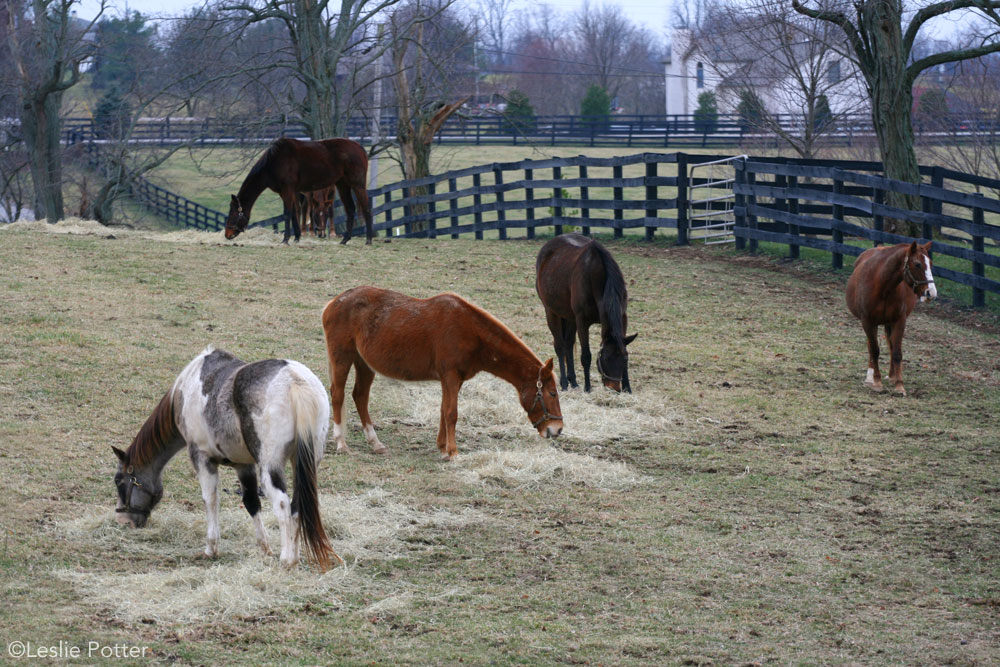How to Help Horses in Need (without Becoming a Hoarder)


Giving back to the equestrian community is something that’s hard wired in to most horse people’s DNA. While some choose to donate money to equestrian causes, many others volunteer their time and manpower to help horses that may have fallen on hard times.
If you’ve been hesitant to become involved in a local horse rescue or adoption agency because you know you’ll fall in love with every equine that walks through the door, fear not. Here are some tips to keep in mind as you help make their lives a bit easier.
- Realize that every horse there is not right for you.
It helps to remind yourself as you work with rescue and adoptable horses that not every horse is the perfect one for you. Maybe some are too small, some are too sassy and some are not your breed of choice. That’s OK! The perfect person to love that horse is out there—and you are doing your part to help ensure that the horse is given the opportunity to put his best hoof forward when they come knocking. - Recognize that finances are limited.
While it would be awesome to have a trust fund and a huge piece of land on which to stash all the horses you rescue, for the vast majority of us, this is not the case. Taking on too many horses and then not being able to properly care for them could be why that horse you love so dearly ended up in the shelter in the first place! It helps to go in to the volunteering process knowing ahead of time that an additional horse is not immediately in your future. - Ask to be present when potential adopters are shown the horse.
As someone who has worked hands-on with the horse for a few weeks or even months, you may be able to provide valuable insight into the horse’s temperament, riding preference or even treat of choice. It might make your heart a bit lighter to know that the potential adopters are good, caring horse people who are looking for their next horse to love.
- Just loving them is enough.
While the stream of incoming horses may seem endless, it’s helpful to remind yourself every day you volunteer that your participation in the horse’s life is enough. To show them love, kindness and compassion, even while not adopting them yourself, is to pay forward a small piece of what the horses give to us. Be grateful for the opportunity. - Remember the end goal.
Just one horse getting adopted opens up space for more horses to enter the rescue or adoption agency and find loving homes of their own.
Volunteering at an equine rescue or adoption agency is one of the most fulfilling opportunities to give back to the horses. While it may seem difficult at first, it is possible to maintain enough of an emotional distance from the horses in the organization’s protection that you’ll be able to provide compassionate care without wanting to take every horse home.
Liked this article? Here are others you’ll love:
Horse Rescue Resources
Help Horses by Volunteering
Recent Posts
How a Horse Girl Stayed Horsey Despite Not Riding for Years
After growing up horsey, Nancy still held on to her identity as a “horse girl” even when she hadn’t ridden…
Barn Banter – Episode 29
Welcome to Barn Banter, the official podcast of Horse Illustrated. In Barn Banter episode 29, hosts Susan Friedland and Horse Illustrated…
How the Nurse Mare Industry is Changing for the Better
The nurse mare industry has been a source of controversy over the years, but practices are changing—meaning a better outlook…
Practical Horse Care: Four Must-Have Products for Every Equine Owner
Horse ownership comes with incredible rewards: the thrill of a pleasure ride, the camaraderie of competition, and the deep bond…
Brain Games: Equestrian Neuroscience
By tapping the power of neuroscience and the miracle of brain plasticity, spending just a few minutes a day practicing…
A Look Into the SAFE Act
The U.S. horse slaughter industry is as hot-button an issue as there is. Find out where current legislation stands with…
View Comments
Great advice.
Most people do not live close enough to volunteer, and do not have the money or funds to donate a lot. I myself can give enough for a sack of grain or a few bales of hay. But I do not like the fact that "some" rescues, also have lawyers, and nice fancy barns, which the volunteers, end up paying for.
Excellent advice. I have fostered three horses with a respected organization in Texas. Only one has captured my heart and become a permanent member of our family. I'm happy to have provided a good temporary home to the other two.
cool
Great advice
Thanks for the encouraging article!
It's a shame so many of the wild horses that have been taken off their legal areas end up at crowded rescues with little space, when through the proper employment of Reserve Design they could be viable and ecologically well adjusted as well as naturally self-stabilizing herds in the West. See my book and article both linkable at my website thewildhorseconspiracy dot org
Thanks, I have a rescue and wish that I had my own place for more. Thanks to those who can help!
HiCaliber Horse Rescue is amazing! Check them out if you're in Valley Center , Ca.